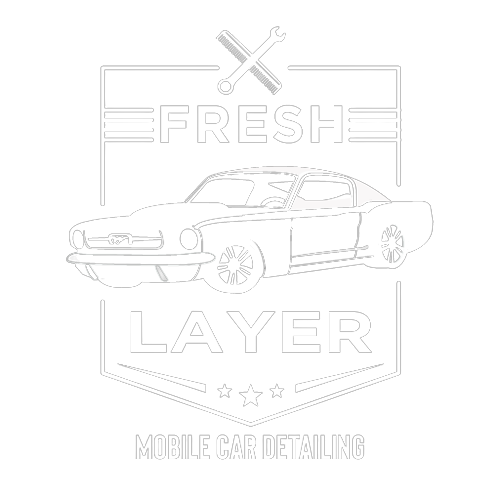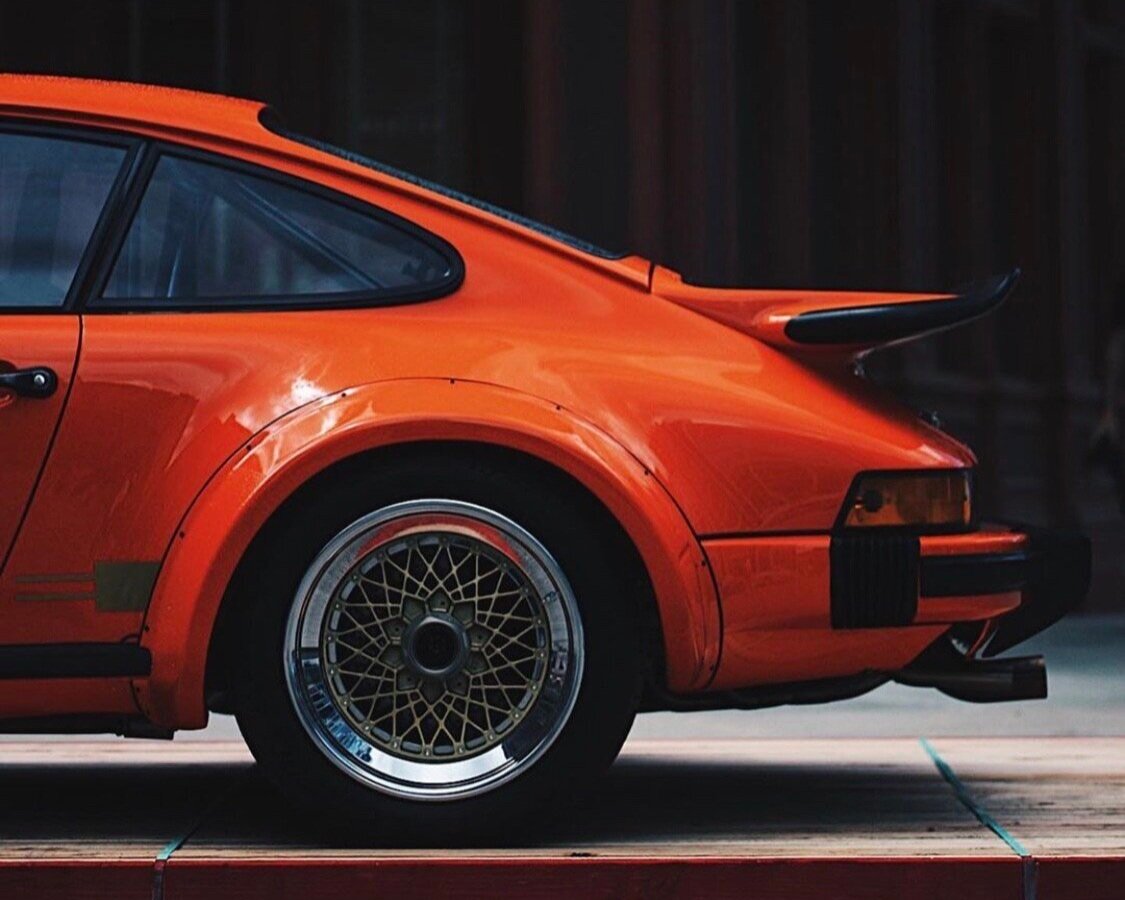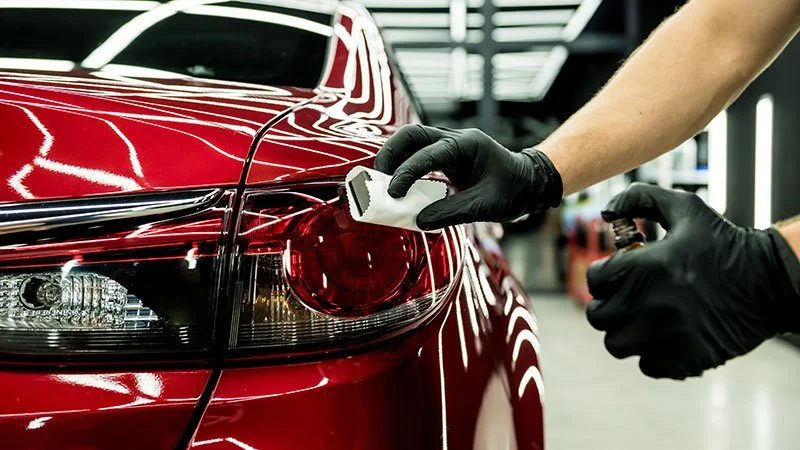Touchless Car Wash the Modern Car Owner's Dilemma
Did you know that Americans spend nearly $5.8 billion annually on automatic car washes, according to the International Carwash Association?
What’s more, an increasing percentage of drivers are opting for the “touchless” variety. This growing trend raises a fundamental question: Is a touchless car wash better than professional detailing?
After all, if technology can clean your car without a single bristle or brush touching its surface, why pay extra for a hand-detailed service?
Have you ever found yourself at a crossroads, choosing between the quick, automated touchless car wash and the meticulous, hand-crafted professional detailing?
It's the modern car owner's dilemma in a world where time is gold, and our vehicles are not just a mode of transport but a statement of our personality.
Unveiling the Best Car Care Approach
In this comprehensive exploration, we'll dive into the nuances of touchless car washes and professional detailing. We're setting out to unravel this mystery with a keen eye on quality, efficiency, and care for your prized possession. Get ready to find out: is a touchless car wash better than professional detailing?
Understanding Car Wash Methods
The Rise of Touchless Car Washes
The touchless car wash has emerged as a beacon of modern convenience. Imagine your car getting a thorough clean without a single brush or cloth touching its surface. High-pressure water jets and specialized detergents do the job, promising a scratch-free finish in record time.But not at all time, some of the old school touches car washes outdated and can cos damages to your car.
The Time-Honored Tradition of Professional Detailing
On the flip side, professional detailing is an art form. It’s a meticulous process where skilled hands apply their craft with precision, using a range of tools and products to not only clean but also protect your car's exterior and interior. It's personalized care at its best. At professinal detailing risks to get your car damaged goes to zero, but still you have to make sure you using a really reputable car detailer not a YouTube DIY detailer.
What Is a Touchless Car Wash?
When we ask, “what is a touchless car wash?”, we’re referring to a system that relies primarily on high-pressure water jets and specialized cleaning chemicals instead of rotating brushes, cloth strips, or bristles.
The concept behind touchless technology is simple: by eliminating physical contact, you reduce the risk of swirl marks, scratches, and paint damage—common concerns with older automatic car wash setups.
The Touchless Process in Detail
Pre-Soak: The vehicle is sprayed with a detergent solution to loosen dirt, grime, and other contaminants.
High-Pressure Rinse: Powerful water jets blast away the suds and dislodged debris.
Chemical Application: Sometimes a second stage of specialized chemicals targets stubborn buildup like bugs or brake dust.
Final Rinse: Another high-pressure rinse washes off remaining detergent and residue.
Drying: Finally, high-velocity air blowers or a short drip-drying session completes the process.
Because no brushes or foam applicators come in direct contact with your car, these systems have gained popularity among owners concerned about micro-scratches.
The question remains, however: is a touch free car wash better for your car’s long-term finish, or does it miss vital detailing steps?
The Science Behind Car Washing
How Touchless Car Washes Work
Touchless car wash technology is a marvel. Sensors first map your vehicle's shape and size, and then a choreographed dance of water and air ensues.
This method uses carefully calibrated water pressure and eco-friendly soaps, ensuring a thorough wash without physical contact.
The Detailed Process of Professional Detailing
Professional detailing, however, takes a different approach. It starts with a deep clean, often involving clay bars to remove minute debris.
Then, depending on the package, it includes waxing, polishing, and even minor paint corrections, ceramic coating protection. Interior-wise, it’s a thorough clean from carpets to upholstery, often leaving your car in a better condition than when it was new.
The Popularity of Touchless Car Washes
Touchless car washes took off in the early 2000s as a response to criticisms that automatic brush-based systems caused cosmetic damage.
As a mobile detailing professional with over 15 years in the field, I’ve seen plenty of vehicles with swirl marks likely caused by older, poorly maintained car wash brushes.
Why People Opt for “No Touch” Systems
Convenience: Drive in, get washed, drive out—often in under five minutes.
Reduced Scratching: Without bristles, the risk of fine scratching is significantly lower.
Broad Accessibility: Many gas stations and dedicated car wash centers now offer a “no touch” option.
But while the convenience factor is undeniable, you may wonder, “are touchless car washes any good” at deep-cleaning your vehicle? For everyday dust and light dirt, sure. But what about mud, bug splatter, or tar?
Real-World Example
One of my regular clients, a busy sales rep, tried exclusively using a local touchless wash for six months.
While his sedan looked generally clean after each pass, he noticed stubborn tar spots on the lower panels never fully disappeared. Eventually, those spots became more difficult to remove.
Once I performed a professional detail, we confirmed that a fair amount of embedded grime had built up—grime that high-pressure water alone hadn’t tackled.
Cost and Convenience: A Comparative Analysis
Evaluating the Efficiency of Touchless Car Washes
When it comes to efficiency, touchless car washes are hard to beat. They offer a quick solution, often taking just a few minutes to transform your car from grimy to gleaming. This speed makes them a go-to option for those with tight schedules who still value the appearance of their vehicle.
The Value Proposition of Professional Detailing
Professional detailing, while more time-consuming, offers a level of care and attention that mass wash systems can't match. The cost might be higher, but the value lies in the meticulous approach, the longevity of the results, and the preservation of your car's condition.
Is a Touchless Car Wash Good for Your Car?
On the surface, the idea of sparing your paint from abrasive brushes sounds great. However, it’s crucial to differentiate between surface-level cleanliness and true detailing. Here are a few benefits of touchless car wash systems, followed by potential drawbacks you should be aware of.
Benefits of Touchless Car Wash
Lower Risk of Scratches: Since there’s no physical contact, swirl marks and micro-scratches from dirty brushes are virtually non-existent.
Time-Saving: Automated systems typically finish a wash in minutes—ideal for busy schedules.
Minimized Cross-Contamination: Brushes that aren’t regularly cleaned can harbor dirt from previous washes, transferring it to your vehicle. Touchless washes dodge that issue.
Eco-Friendly Potential: Some facilities recycle water and use biodegradable detergents, though practices vary from location to location.
Potential Pitfalls
Heavy Chemical Use: To compensate for zero scrubbing, these washes often rely on more potent chemicals, which can sometimes strip off wax or sealants.
Incomplete Cleaning: Stubborn contaminants, such as caked-on mud, sap, or tar, may need direct agitation to fully remove.
Possible Water Spotting: High-pressure rinses can leave behind mineral deposits if not followed by proper drying techniques, leading to water spots.
Paint Protection Issues: Aggressive chemicals might reduce the lifespan of protective coatings like wax or ceramic seals.
So, is a touchless car wash better than older brush-based washes? In many cases, yes—especially if your primary worry is avoiding micro-scratches. But is it enough to preserve your car’s finish over time, especially if you’re meticulous about paint condition?
Are Touchless Car Washes Bad for Your Car?
It’s easy to jump to extremes when discussing new cleaning technologies. You might hear people say, “are touchless car washes bad?” or “is a touchless car wash bad for your car?” The truth lies somewhere in the middle.
Understanding the “Bad” Factors
Harsh Chemicals: Some chemicals can be so strong that they degrade wax layers, dulling your car’s shine.
Negligent Maintenance: If the facility’s equipment isn’t well-maintained, water pressure can be inconsistent. Overly high pressure may harm weak paint or loose trim pieces.
No Hands-On Inspection: Unlike a professional detailer who checks every inch of your vehicle for defects, a machine merely runs through a preset cycle. You could be missing early signs of paint damage, rust, or pitting.
Despite these risks, many modern touchless washes strive to mitigate such issues by balancing cleaning strength with protective measures.
If you’re asking, “are touchless car washes bad for your car overall?” the honest answer is that they’re typically less damaging than older automated washes with dirty brushes. But they still don’t replace a thorough, hands-on inspection and detail.
Touchless Car Wash vs. Professional Detailing—Key Differences
“Is a no touch car wash better” or is professional detailing worth the extra cost? Each approach caters to different needs, budgets, and expectations. Let’s break down how they differ:
1. Depth of Cleaning
Touchless Car Wash: Primarily surface-level cleaning. Good for regular maintenance but may struggle with embedded grime, brake dust, and tar.
Professional Detailing: Thorough interior and exterior cleaning, targeting even the smallest crevices. Often includes paint correction, waxing, or ceramic coating.
2. Time & Convenience
Touchless Car Wash: Quick, automated, usually done in under 10 minutes. Ideal for busy individuals.
Professional Detailing: Can take hours, especially if advanced paint correction or interior steam cleaning is involved. Requires scheduling and possibly leaving your car for a half or full day.
3. Risk of Damage
Touchless Car Wash: Reduced risk of swirl marks, but potential chemical harm and water spotting if not well-maintained.
Professional Detailing: Reputable detailers use controlled, gentle washing techniques. Quality can vary by skill, but top-notch pros protect the paint meticulously.
4. Cost
Touchless Car Wash: Generally $7–$15, depending on location and add-ons like hot wax or undercarriage wash.
Professional Detailing: Ranges from $50 for a basic wash and wax to several hundred dollars for full paint correction and interior detailing.
5. Longevity of Results
Touchless Car Wash: Offers a quick shine that may fade within days if heavy contaminants remain.
Professional Detailing: Protects your car’s exterior for weeks or months with layers of sealant or wax, plus it addresses interior hygiene and odor removal.
Expert Insight
As someone who’s performed thousands of professional details on daily drivers, fleet vehicles, and exotic cars, I can attest that a professional detailing is an investment in your vehicle’s appearance and longevity.
However, if you need a quick solution for light dirt and your car’s finish isn’t your top priority, a touchless car wash can do the trick. The question isn’t necessarily “is a touchless car wash better”, but whether it meets your car care goals.
The Impact on Car Health and Longevity
Assessing the Gentleness of Touchless Methods
Touchless car washes boast a gentle approach, free from the abrasion of brushes and cloths. This method can be particularly beneficial for cars with delicate paint jobs or custom finishes, reducing the risk of scratches and swirl marks.
The Protective Benefits of Professional Detailing
Conversely, professional detailing offers protective benefits that go beyond mere cleaning. Regular detailing can extend the life of your paintwork, protect your car from environmental factors, and maintain its resale value.
Environmental Considerations
The Eco-Friendly Edge of Touchless Car Washes
In today's environmentally conscious world, the eco-friendliness of touchless car washes is a significant advantage. Many use water reclamation systems and biodegradable cleaning agents, making them a more sustainable choice.
Sustainable Practices in Professional Detailing
However, the world of professional detailing is not far behind in environmental stewardship. Many detailers now use eco-friendly products and methods, reducing water usage and chemical runoff, thereby offering a greener alternative to traditional detailing practices.
Customer Experiences and Reviews
Touchless Car Wash Testimonials
Users of touchless car washes often praise the convenience and speed, highlighting the satisfaction of getting a quick yet thorough clean. Busy professionals, parents, and those who view their car more as a utility than a luxury, tend to favor this method.
Stories from Satisfied Detailing Clients
Detailing clients, on the other hand, often speak to the unparalleled attention to detail and personalized service they receive. Car enthusiasts, collectors, and those who see their car as an extension of their identity often opt for professional detailing services.
Expert Opinions and Statistics
Insights from Car Care Professionals
Experts in the car care industry tend to agree that both methods have their place. They often recommend touchless washes for regular maintenance but advocate for professional detailing for more thorough care, especially for high-end vehicles.
Statistical Evidence: Which Method Prevails?
Statistically, the preference between touchless car washes and professional detailing varies based on lifestyle, car type, and personal values. While touchless washes are gaining popularity for their convenience, detailing maintains a strong following for its comprehensive approach.
Frequently Asked Questions (FAQ)
-
A touchless car wash uses high-pressure water and chemical detergents to clean vehicles without brushes or cloths physically contacting the paint, reducing the risk of scratches.
-
It can be better for paint protection because there’s no bristle contact. However, touchless systems may rely on stronger chemicals that can strip protective wax.
-
Not necessarily. They’re generally gentler than brush-based washes. Still, overly strong chemicals and high-pressure jets can affect wax or weaker clear coats.
-
It’s fine for routine cleaning, but it won’t remove tough contaminants or provide deep protection. Occasional professional detailing is recommended for optimal care.
-
They’re safer than brush washes, but still might not meet the meticulous standards luxury or classic cars often require. A hand wash or professional detail is usually preferred.
-
Touch free is faster and can reduce scratches, but hand washing (done correctly) offers a more thorough clean and detailed inspection of your vehicle’s condition.
Conclusion
Summing Up the Debate
So, is a touchless car wash better than professional detailing? The answer is nuanced and largely dependent on individual needs and values. Touchless car washes offer unmatched convenience and speed, while professional detailing provides comprehensive care and preservation of your vehicle's aesthetics and value.
Final Recommendations for Car Owners
For the average car owner, a blend of both methods might be the key. Regular touchless washes for routine maintenance, complemented by periodic professional detailing for deep cleaning and preservation, could offer the best of both worlds. It's about finding a balance that works for your lifestyle, budget, and the level of care your car needs.









